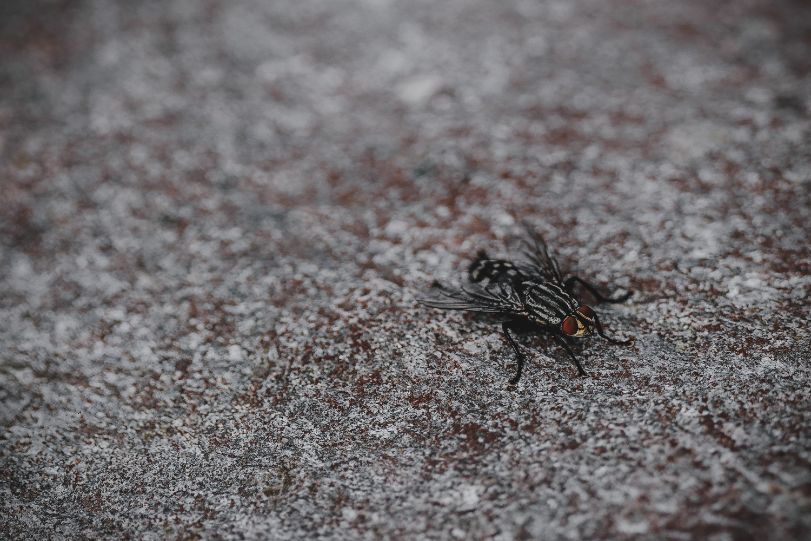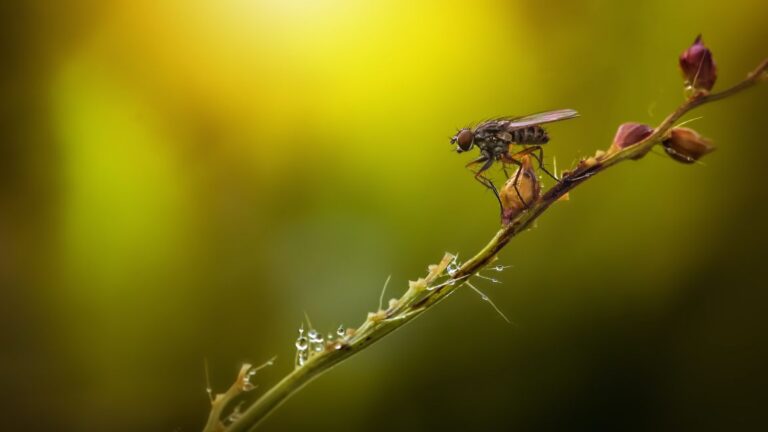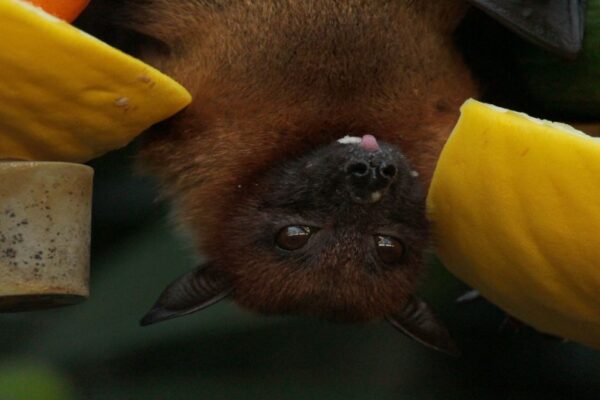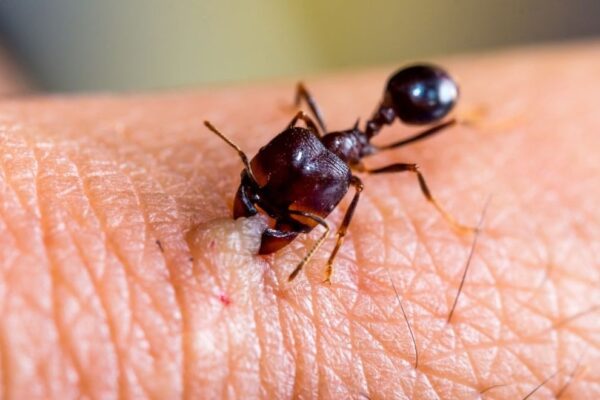Flies are unwelcome little pests that crawl around your house and land on food. Have you ever wondered what happens to flies at night or whether they sleep like people? Although flies typically nap during the day, they occasionally also do so at night. Please continue reading if you’re curious to learn more about flies sleeping.
What Are Flies?
There are more than 120,000 different species of flies in the world. Therefore, “what types of flies are there” might be a better heading for this section.”
Fly is a common two-winged insect that is a member of the order Diptera. The world is home to thousands of different fly species, including horse flies, fruit flies, and house flies. From the stage of the larva to the adult, their life span is only about 5 to 30 days.
Flies actually play a significant role in the ecological food chain, including pollinating plants and assisting with decomposition, despite being a major nuisance to people and spreading diseases.
Where Do Flies Go At Night?
With the notable exception of mosquitoes, most flies are daytime fliers. For visual guidance, they require polarized light. They are constantly active during the day and dormant at night.
The temperature of flies is similar to that of their surroundings because they have cold blood. Low temperatures are bad for most flies’ ability to grow or function.
As a result of the low nighttime temperature, they move more slowly and become more laid back. Most enter a dormant state when it’s freezing, where body functions are significantly slowed.
Most flies find shelter at night.
In order to rest until the sun rises again, they locate a place to land. Resting spots can be found in stalls in bathrooms, under leaves or grass, on branches, tree trunks, walls, curtains, corners, and so forth. They can genuinely snooze anywhere.
Where Do House Flies Go During The Night?

Have you ever wondered where house flies go at night? For the response, continue reading.
According to the definition of the term “cold-blooded,” which is used to describe flies, this refers to the way in which a fly’s body temperature varies depending on its environment. Flies search for a cozy place to sleep as night falls.
At low temperatures, the majority of flies struggle to survive. The majority of flies seek shelter in warm crevices of walls or curtains at night because it is so cold outside. Flies typically snooze on the undersides of leaves, branches, long grass, or tree trunks in the wild.
Even though they don’t sleep at night as humans do, flies do. In an effort to make up for a bad night’s sleep, a fly will try to sleep in earlier the following day.
Unlike mosquitoes, houseflies spend the night sleeping on surfaces such as floors, walls, trash cans, electric wires, and indoor ceilings. Houseflies sleep and stop being active at night when they are in their natural habitat.
For visual navigation, houseflies need polarized light. Adult flies can’t move when it’s cold, and they may go dormant or even die.
Do Flies Sleep?
Yes, flies do sleep, and the majority of their species sleep all night long and are awake during the day. In order to recharge after being active all day, they also nap during the day.
A number of studies have also revealed that some flies experience the same sleep cycle as humans and that each stage of their sleep is accompanied by a unique pattern of brain activity.
Where Do Flies Sleep?
By the end of the day, flies will search for a location to set up camp and spend the night.
Naturally, flies prefer to sleep in a place that is protected from potential predators. However, flies can find a place to rest anywhere, including on tree trunks, branches, and under grasses and leaves.
If they are in your home, they might also seek cover on your drapes, walls, or floors. Anywhere they can land and rest, flies will sleep there. And you can anticipate that these flies will rest until daybreak.
Fly sleep alone, too. They don’t live in a colony and don’t require a nest or any particular place to sleep.
Do Flies Fly At Night?
Although most flies sleep during the night, nocturnal flies like mosquitoes can stay up all night in search of blood to suck on. This is so that they can see in the dark thanks to their highly sensitive antennae and eyes.
They can disturb you while you’re sleeping thanks to their night vision. However, the majority of fly species are fast asleep and don’t fly at night.
Interesting Facts About Flies Sleep
- The majority of the sleep that flies need each day occurs at night. They do, however, also occasionally take quick naps during the day.
- Certain medications have the same effects on a fly’s sleep cycle as they do on humans. For instance, substances like caffeine, cocaine, and modafinil (a medication ingredient that keeps humans alert) keep flies awake. They become groggy, just like people, when given antihistamines or alcohol.
- When it’s hot outside, flies need more sleep than when it’s a little cooler.
- Flies will attempt to sleep longer the following day to make up for not being able to do so the previous night. Sleep rebound is the term for this.
- Fly memory may even be affected by increased sleep deprivation.
- Researchers discovered in a different study that young flies require more sleep than adult flies. For proper brain development, baby flies need more sleep.
Final Words
Flies sleep for a brief period of time during the day to avoid the afternoon heat. Adult flies spend the entire day buzzing around, even though they are awake during the day, and they sleep soundly at night. Fly need sleep just like humans. In order to develop and grow, baby flies require more sleep than adults do.





